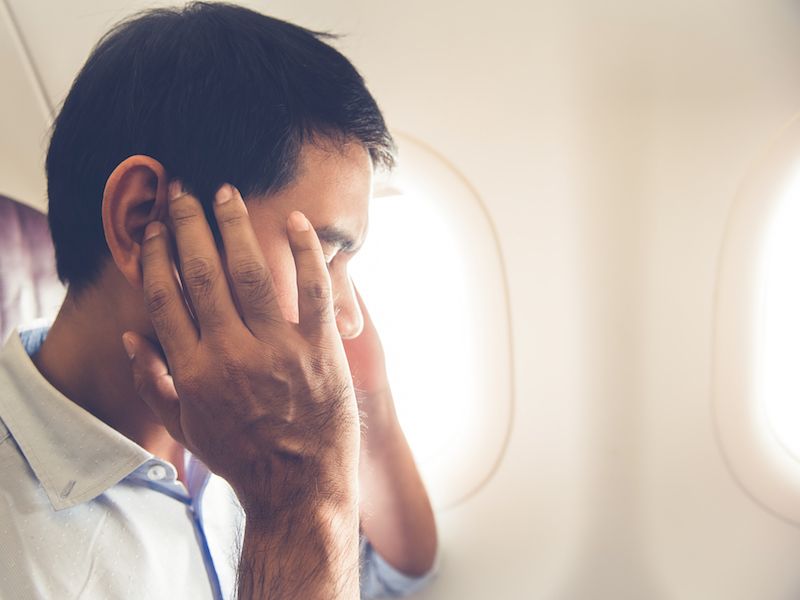
You have good days, and you have bad days, that’s commonplace for individuals who suffer from tinnitus but why? Tinnitus is the medical name for ringing in the ears, a condition that more than 45 million Americans experience, according to the American Tinnitus Association, and comes along with hearing loss by around 90 percent of them.
But what’s difficult to comprehend is why it’s virtually non-existent on some days and on others the ringing is so intrusive. It’s not entirely clear why this occurs, but some common triggers may clarify it.
What Is Tinnitus?
The following phantom noises are heard by people who suffer from tinnitus:
- Roaring
- Ringing
- Hissing
- Buzzing
- Clicking
You hear it, the person right next to you can’t, which is part of what makes tinnitus so disturbing. Also, the pitch and volume can vary. One day it could be a roar and the next day be gone completely.
Exactly What Causes Tinnitus?
The most common cause is a change in a person’s hearing. These changes might be due to:
- Earwax build up
- Ear bone changes
- Aging
- Noise trauma
There are other potential causes, as well, including:
- Atherosclerosis
- An issue with the carotid artery or jugular vein
- Meniere’s disease
- TMJ issues
- Tumor in the head or neck
- Acoustic neuroma
- High blood pressure
- Head trauma
For a small fraction of people, there isn’t any apparent explanation for them to have tinnitus.
If your tinnitus has just started, see your doctor to learn what is going on with your ears. The issue might be something treatable or it might be a symptom of a life-threatening condition like high blood pressure or heart disease. A side effect of a new medication might also be the cause.
Why Does the Ringing Get Worse on Some Days?
The reason why tinnitus is more severe on some days is a bit of a medical mystery. The reason might be different for each person, also. However, there may be some common triggers.
Loud Events
Loud events like concerts, club music, and fireworks are enough to aggravate your tinnitus. If you expect to be subjected to loud noise, your best option is to wear ear protection. They make earplugs, for example, that will permit you to enjoy music at a live performance but reduce the effect it has on your hearing.
You can also stay away from the source of the sound. For instance, don’t stand next to the speakers at a concert or up front at a fireworks display. Combined with hearing protection, this will lessen the impact.
Loud Noises at Home
Stuff around the house can be equally as aggravating as a loud concert. For instance, mowing the lawn is enough to trigger tinnitus. Here are some other sounds from around the house that can cause damage:
- Laundry – For instance, if you fold clothes while the washer is running.
- Wearing headphones – The function of headphones is to raise the volume of your audio which could be irritating your tinnitus so it could be time to lose those earbuds.
- Woodworking – Power tools are loud enough to be an issue.
If there are activities you can’t or don’t want to avoid such as woodworking, wear hearing protection.
Workplace Noise
Loud noises on the job are just as harmful as any other. If you work around machinery or in construction it’s especially crucial to use hearing protection. Your employer will probably supply ear protection if you inform them of your concerns. Let your ears rest during your off time.
Air Pressure Changes
When most people go on a plane they experience ear popping. The shift in air pressure and the noise from the plane engines can lead to an increase in tinnitus. If you are traveling, take some gum with you to help neutralize the air pressure and consider ear protection.
You can experience changes in pressure without leaving your home, too. If you have sinus issues, for example, consider taking medication to help relieve them.
Medication
Medication might also be the issue. Some medications are ototoxic, meaning they affect the ears. Some common drugs on the list include:
- Over-the-counter pain relievers
- Diuretics
- Antibiotics
If you’re experiencing a worsening of your tinnitus after you start taking a new medication, check with your doctor. It might be possible to change to something else.
For some people tinnitus is not just annoying it’s disabling. To be able to understand how to control it from day to day, the first step is to figure out what’s causing it.